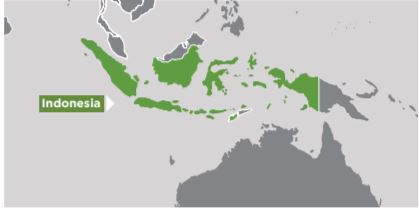Overview
This project aims to overcome key constraints for smallholder producers in Indonesian agricultural-tourism ecosystems in Bali, Nusa Tenggara Barat, and North Sulawesi, through the inclusive, collaborative, and value-creating development of improved practices and value chain partnerships.
Through a participatory process, the project will examine the disconnect between smallholder agri-food products and services with the expectations of local high-demand tourism markets and create shared solutions that are tested and evaluated through the complete value chain.
Agriculture and tourism are significant contributors to the Indonesian economy. Both sectors are high priorities for the government and private sector, providing opportunities for economic growth and employment. A high-intensity tourism sector provides a significant market opportunity for smallholders, however, there are significant constraints to the benefits of these market opportunities.
Building the capacity of smallholder agricultural communities to engage in these markets provides an opportunity to sustainably grow both sectors. Three different agricultural-tourism ecosystems, each at a different maturity of engaging with the tourism sector, present a unique and valuable opportunity to compare and contrast smallholder engagement in the local tourism sector, identify various constraints at different stages of development, and provide recommendations for sustainable engagement throughout the market lifecycle.
The effect of this project will be to foster rural communities with inclusive and responsive smallholder agribusiness networks that are actively creating value with local, high-demand tourism opportunities.
Expected project outcomes
- Building capacity of smallholders to identify and adapt to change and to accommodate new opportunities in high-value, and demanding, markets resulting in improved resilience.
- Improving capability and livelihoods of smallholders and their communities through the integrated approach of collaborative value chains, improved value conversion and market engagement.
- Enhancing the profitability of farm enterprises and contributing to improved food security and livelihoods.; Enabling farming families to actively engage through higher participation from women and girls and provide better management of household resources.
- Supporting farm enterprises to improve value conversion and in turn improve business opportunities and farm incomes.




